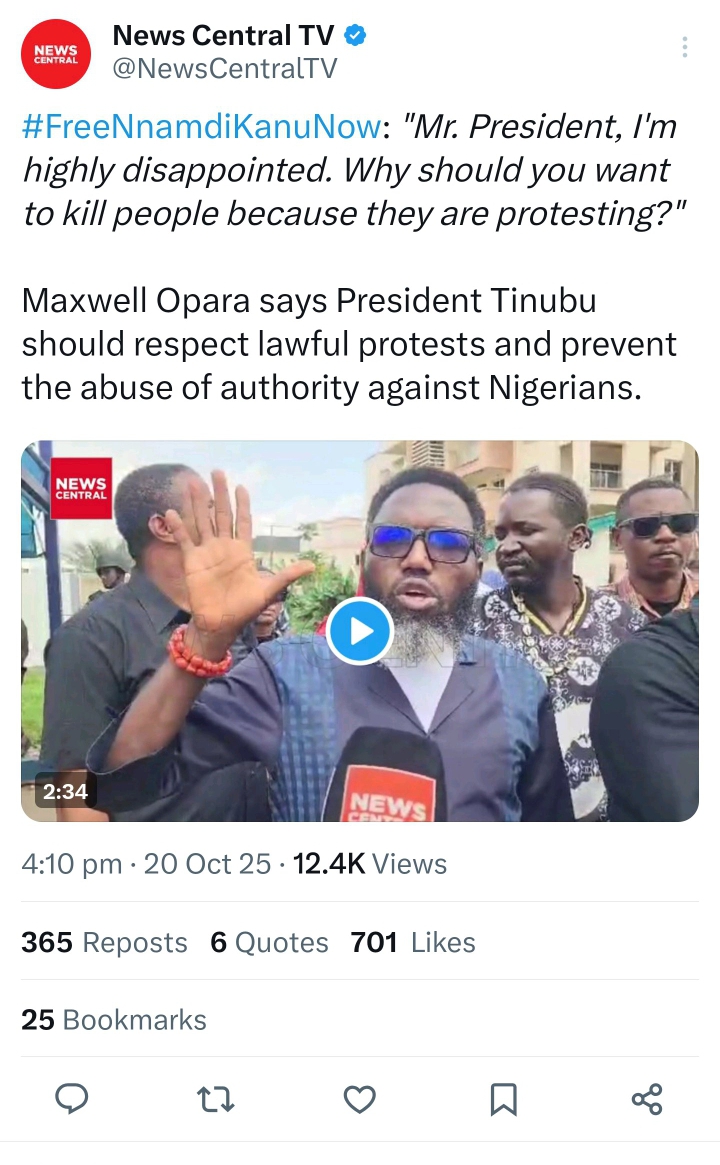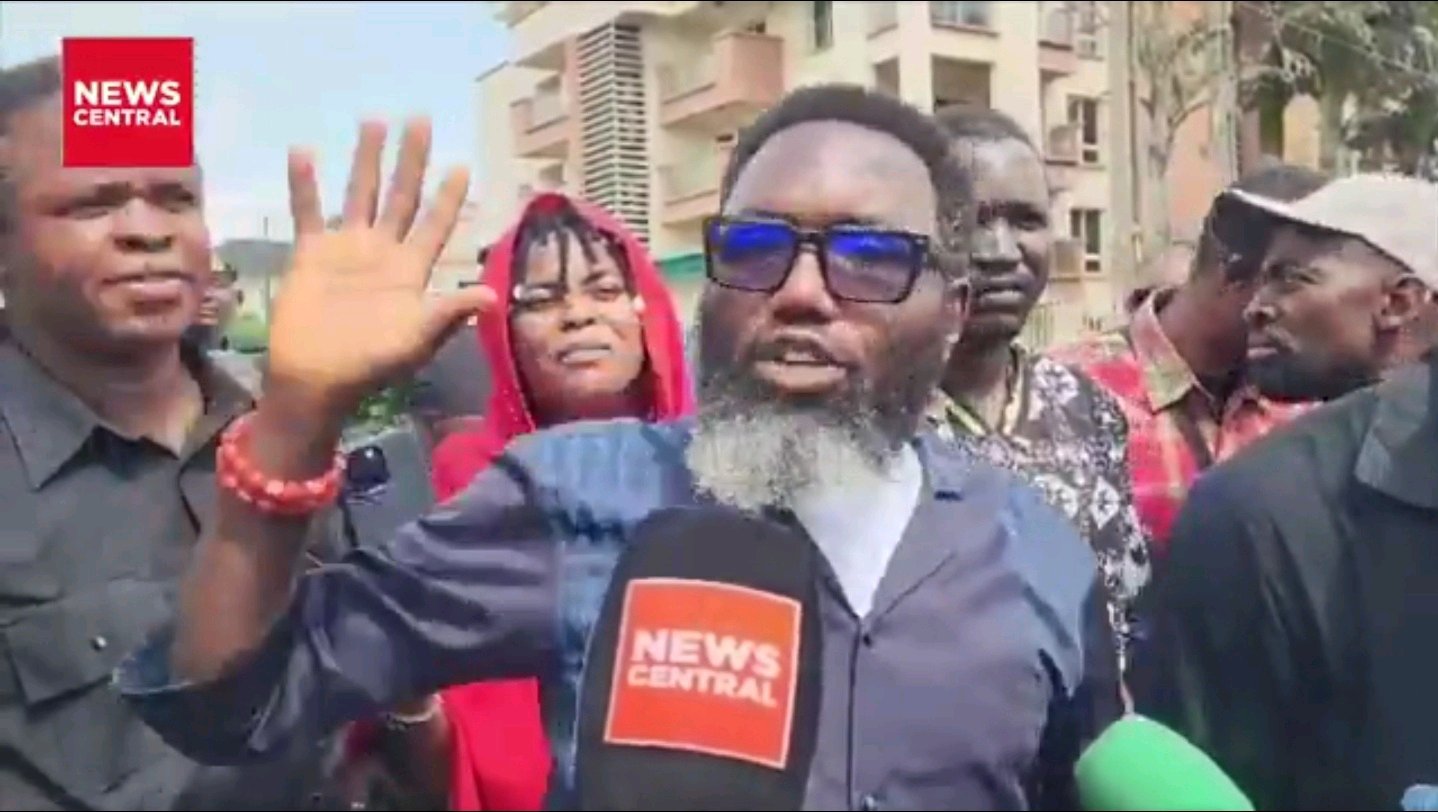Amid ongoing demonstrations in Nigeria’s capital on Monday October 20, 2025, Maxwell Opara, a counsel to detained Indigenous People of Biafra (IPOB) leader Nnamdi Kanu, publicly condemned the security forces’ response to peaceful protesters advocating for Kanu’s release.
Speaking to journalists outside a police facility, Opara described how demonstrators, initially gathered in Abuja’s central area, relocated to the Utako district in compliance with a court order restricting protests in sensitive zones.
Despite this, he alleged that police deployed tear gas and rubber bullets against the crowd, leading to multiple arrests, including members of Kanu’s legal team. Opara’s remarks highlight escalating concerns over the handling of civil dissent in Nigeria, where calls for Kanu’s freedom have intensified amid claims of judicial delays and human rights violations.
Opara recounted his attempts to secure the release of the detainees, noting that upon visiting the Federal Capital Territory (FCT) Police Command, he encountered resistance and rudeness from the Public Relations Officer (PRO). He claimed the PRO insulted him personally, dismissing his inquiries by stating the matter was a “national issue” beyond local jurisdiction.
Efforts to contact higher authorities, such as CSP Benjamin, proved futile as calls went unanswered. Opara emphasized that such treatment undermines the presumption of innocence and transforms Nigeria into what he termed a “banana republic,” where arbitrary detentions prevail.
His frustration underscores a perceived pattern of institutional obstruction in cases involving political activism, particularly those tied to separatist movements in the South-East region.
In a direct appeal to President Bola Tinubu, Opara expressed profound disappointment, questioning why a leader who benefited from past protests would now sanction violence against demonstrators. Recalling his own participation alongside Tinubu in the 2012 Ojota protests against then-President Goodluck Jonathan’s fuel subsidy removal, Opara argued that Tinubu’s ascent to power was rooted in such civic actions.
He urged the president to uphold democratic principles, respect lawful assemblies, and prevent the abuse of authority that could escalate tensions. Opara’s invocation of historical precedents serves to remind authorities of the role protests played in Nigeria’s political evolution, including Jonathan’s eventual peaceful handover of power.

The incident forms part of a broader wave of advocacy for Kanu, who has been in custody since 2021 on charges including terrorism, with supporters arguing for a political resolution to foster regional stability. As similar reports of arrests and clashes emerge from activists like Omoyele Sowore, the events in Abuja raise critical questions about the balance between national security and constitutional rights to assembly and expression.
Opara’s stance amplifies calls from South-East governors and lawmakers for dialogue, potentially influencing future government responses amid Nigeria’s complex ethnic and political landscape. This development may prompt increased scrutiny from human rights organizations, emphasizing the need for accountability in law enforcement practices. See, More, Here>>>
Explore More News By Using The Button Above.

